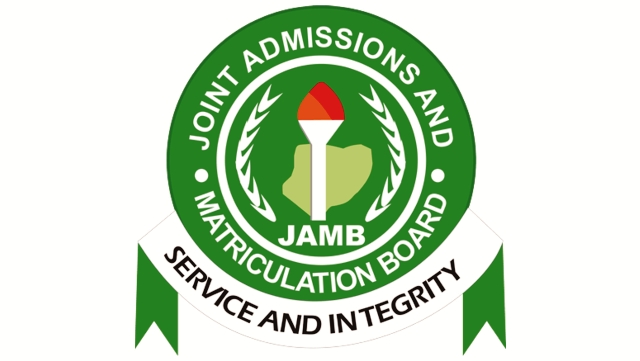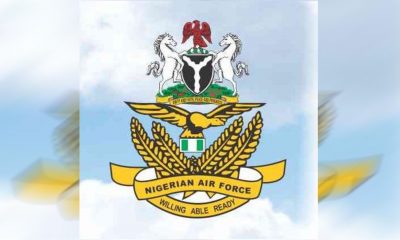Opinion
Rivers Investment Forum And GPHC
The viability of every
nation-state depends on the structure and strength of its economy, Nigeria is no exception. The potency of every nation is assessed based on the level of infrastructure and human development.
In that regard, the private sector and other stakeholders will not forget in a hurry the limitless investment opportunities in Rivers State, especially in the oil and gas sector, and in the Greater Port Harcourt Mega City, aimed at decongesting the Garden City to ensure a sustainable urban growth.
The collaboration between government and the private sector is a powerful tool for attracting private investment. This, however, lays credence to the fact that the Rivers State Government strongly believes in the strategic role of the private sector as the driver of economic development in the society.
Little wonder the former British Prime Minister, Gordon Brown, in his keynote address said: “Rivers State is a success story in Africa and the world – the sustenance of her prosperity does depend on massive infrastructural development”. This is exactly the priority of Governor Amaechi’s administration in the state.
Rivers State accounts for 100% of the Liquefied Natural Gas exports from Nigeria and over 40% crude oil produced onshore and 10% of the nation’s GDP.
Port Harcourt and its environs over the years witnessed astronomical increase in size without a commensurate expansion in its public infrastructure, creating unacceptable urban sprawl. This has resulted in chaotic traffic congestion and the emergence of slums within the city.
Dame Aleruchi Cookey-Gam, GPH Administrator, stated that: “This conference no doubt would not have come at a better time than now, as it has settled the issue of political will to implement the project. She surmised, adding that “the New City Master Plan will curb the spate of unstructured development”.
Where the urban regeneration process starts with the upgrading of infrastructure in the Old City, the New City Master Plan concentrates on the New City Area, refining the Urban Development Framework and providing a town plan at district levels supported by clear planning principles and intensive development control regulation.
In furtherance of clear planning, there are categories of roads. A 6 lane freeway will link both cities starting from UTC Junction to the Central Business District, while the M10 free way will connect the two major anchors – the Port Harcourt International Airport and the Onne Seaport. Other investment opportunities include: housing, shopping complex, 18 hole golf course, power generation and transmission, transportation etc.
Mrs. Cookey-Gam, at a meeting with the Builders Association of Nigeria recently, re-emphasized that the Authority would conform to quality standards in the execution of all projects. Other professional bodies collaborating with the Authority are: The Nigerian Institute of Architects and international organizations like UNoPs, AFDB, United Nations Habitat, Shelter Afrique etc. are seeking ways of collaborating with GPHCDA.
In protecting investment, the Rivers State Government has provided a strong legal framework that provides regulatory mechanism, as well as reduce the risk of any policy reversal by future administrations. These include:
The GPHCDA Law No.2 of 2009 which mandates the Authority to protect private investment (local and foreign), procure from state government; guarantees, letters of comfort, indemnities and undertakings, the Public Procurement Law No.4 of 2008 which also established the Bureau of Public Procurement which ensures a fair, transparent and well managed procurement process and the Public Private Participation in Infrastructure Law No.5 of 2009 to facilitate and regulate partnerships between the public and private sectors.
Other incentives for investors may include tax holidays, in exceptional cases availability of land and clear guidelines for smooth operations, which makes the Greater Port Harcourt project safe and investment friendly.
Ikeokwu wrote from Port Harcourt.
Prince Ikeokwu
Opinion
Why Reduce Cut-Off Mark for C.O.E ?
Opinion
Welcome! Worthy Future For R/S
Opinion
Restoring Order, Delivering Good Governance
The political atmosphere in Rivers State has been anything but calm in 2025. Yet, a rare moment of unity was witnessed on Saturday, June 28, when Governor Siminalayi Fubara and Minister of the Federal Capital Territory, Chief Nyesom Wike, appeared side by side at the funeral of Elder Temple Omezurike Onuoha, Wike’s late uncle. What could have passed for a routine condolence visit evolved into a significant political statement—a symbolic show of reconciliation in a state bruised by deep political strife.
The funeral, attended by dignitaries from across the nation, was more than a moment of shared grief. It became the public reflection of a private peace accord reached earlier at the Presidential Villa in Abuja. There, President Bola Ahmed Tinubu brought together Governor Fubara, Minister Wike, the suspended Speaker of the Rivers State House of Assembly, Martin Amaewhule, and other lawmakers to chart a new path forward.
For Rivers people, that truce is a beacon of hope. But they are not content with photo opportunities and promises. What they demand now is the immediate lifting of the state of emergency declared in March 2025, and the unconditional reinstatement of Governor Fubara, Deputy Governor Dr. Ngozi Odu, and all suspended lawmakers. They insist on the restoration of their democratic mandate.
President Tinubu’s decision to suspend the entire structure of Rivers State’s elected leadership and appoint a sole administrator was a drastic response to a deepening political crisis. While it may have prevented a complete breakdown in governance, it also robbed the people of their voice. That silence must now end.
The administrator, retired naval chief Ibok-Ette Ibas, has managed a caretaker role. But Rivers State cannot thrive under unelected stewardship. Democracy must return—not partially, not symbolically, but fully. President Tinubu has to ensure that the people’s will, expressed through the ballot, is restored in word and deed.
Governor Fubara, who will complete his six-month suspension by September, was elected to serve the people of Rivers, not to be sidelined by political intrigues. His return should not be ceremonial. It should come with the full powers and authority vested in him by the constitution and the mandate of Rivers citizens.
The people’s frustration is understandable. At the heart of the political crisis was a power tussle between loyalists of Fubara and those of Wike. Institutions, particularly the State House of Assembly, became battlegrounds. Attempts were made to impeach Fubara. The situation deteriorated into a full-blown crisis, and governance was nearly brought to its knees.
But the tide must now turn. With the Senate’s approval of a record ?1.485 trillion budget for Rivers State for 2025, a new opportunity has emerged. This budget is not just a fiscal document—it is a blueprint for transformation, allocating ?1.077 trillion for capital projects alone. Yet, without the governor’s reinstatement, its execution remains in doubt.
It is Governor Fubara, and only him, who possesses the people’s mandate to execute this ambitious budget. It is time for him to return to duty with vigor, responsibility, and a renewed sense of urgency. The people expect delivery—on roads, hospitals, schools, and job creation.
Rivers civil servants, recovering from neglect and under appreciation, should also continue to be a top priority. Fubara should continue to ensure timely payment of salaries, address pension issues, and create a more effective, motivated public workforce. This is how governance becomes real in people’s lives.
The “Rivers First” mantra with which Fubara campaigned is now being tested. That slogan should become policy. It must inform every appointment, every contract, every budget decision, and every reform. It must reflect the needs and aspirations of the ordinary Rivers person—not political patrons or vested interests.
Beyond infrastructure and administration, political healing is essential. Governor Fubara and Minister Wike must go beyond temporary peace. They should actively unite their camps and followers to form one strong political family. The future of Rivers cannot be built on division.
Political appointments, both at the Federal and State levels, must reflect a spirit of fairness, tolerance, and inclusivity. The days of political vendettas and exclusive lists must end. Every ethnic group, every gender, and every generation must feel included in the new Rivers project.
Rivers is too diverse to be governed by one faction. Lasting peace can only be built on concessions, maturity, and equity. The people are watching to see if the peace deal will lead to deeper understanding or simply paper over cracks in an already fragile political arrangement.
Wike, now a national figure as Minister of the FCT, has a responsibility to rise above the local fray and support the development of Rivers State. His influence should bring federal attention and investment to the state, not political interference or division.
Likewise, Fubara should lead with restraint, humility, and a focus on service delivery. His return should not be marked by revenge or political purges but by inclusive leadership that welcomes even former adversaries into the process of rebuilding the state.
“The people are no longer interested in power struggles. They want light in their streets, drugs in their hospitals, teachers in their classrooms, and jobs for their children. The politics of ego and entitlement have to give way to governance with purpose.
The appearance of both leaders at the funeral was a glimpse of what unity could look like. That moment should now evolve into a movement-one that prioritizes Rivers State over every personal ambition. Let it be the beginning of true reconciliation and progress.
As September draws near, the Federal government should act decisively to end the state of emergency and reinstate all suspended officials. Rivers State must return to constitutional order and normal democratic processes. This is the minimum requirement of good governance.
The crisis in Rivers has dragged on for too long. The truce is a step forward, but much more is needed. Reinstating Governor Fubara, implementing the ?1.485 trillion budget, and uniting political factions are now the urgent tasks ahead. Rivers people have suffered enough. It is time to restore leadership, rebuild trust, and finally put Rivers first.
By: Amieyeofori Ibim
Amieyeofori Ibim is former Editor of The Tide Newspapers, political analyst and public affairs commentator
-
Politics1 day ago
Bayelsa APC Hails Late Buhari As Change Agent In Nigerian Politics
-

 News1 day ago
News1 day agoShettima, Atiku, Obi Attend Buhari’s Fidau Prayer In Daura
-

 News1 day ago
News1 day agoJAMB Uncovers 9,469 Fake Admissions In 20 Tertiary Institutions
-

 News1 day ago
News1 day agoNAF Disowns Recruitment Adverts, Says It’s Fake
-
Nation1 day ago
Alumni, Others Launch Campus Care Initiative In Port Harcourt
-
News1 day ago
Rivers Chief Judge Frees 21 Awaiting Trial Inmates
-
Politics1 day ago
Natasha’s Counsel Writes Senate Over Court Judgment
-
Nation1 day ago
NIPR Practitioners Urge To Go Beyond Traditional Media Relations To Strategic Leadership Functions

